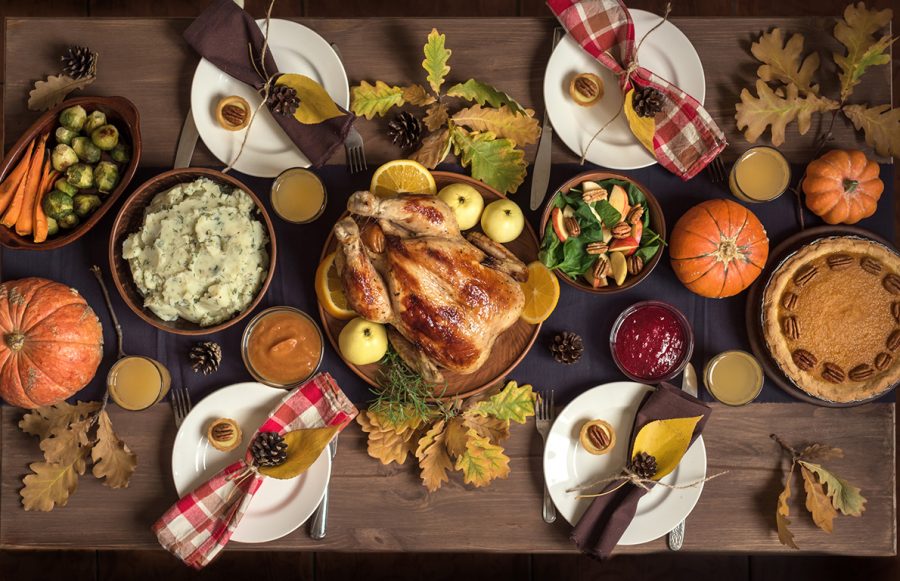It’s the most wonderful time of the year! Friends, family and loved ones gather around the table to share a most glorious dinner.
However, It’s also a time for kind, but blissfully ignorant family members to question and criticize your meat-free lifestyle. Still, it’s possible for meat-eaters and meat-free people to enjoy the holiday season.
Here’s a guide to surviving the family setting while being vegetarian.
- Talk to dinner hosts and prepare in advance
It wouldn’t be fair to just show up and expect there to be a table full of only food for you to eat. Unless every single person attending the dinner is conscious of your vegetarianism or is vegetarian him/herself, there will probably be dishes that won’t suit your dietary needs.
Let your host know which ingredients are off-limits to you and offer suggestions on how to make a recipe vegetarian- and vegan-friendly. For example, traditional broth used for gravy and stuffing can easily switched with vegetable broth.
Also, try to show up early and help make the vegetarian dishes if your hosts are unfamiliar with meat-free cooking. As long as it doesn’t seem like you are just presenting a list of demands to your hosts, they will probably be quite willing to accommodate some (or all) of your needs.
- Bring a few dishes of your own
Most people don’t show up to someone’s house empty-handed for Thanksgiving and Christmas dinner anyway, and the dishes would be appreciated. Ask your hosts what types of dishes they would like you to bring. Whole Foods stores offer vegetarian Thanksgiving cooking classes in the weeks before Thanksgiving.
Besides, bringing your own delicious dishes is a great chance to show everyone you’re not missing out on good food just because you choose not to consume meat.
- Set aside lifestyles to keep the peace
Holiday dinners are for friends and family to gather and celebrate traditions, be grateful for one another and love. The dinner table is not the place to be judgmental or preachy about anyone’s lifestyle. It’s best not to bring up the cruelty of factory farming. Don’t make the other guests feel guilty or uncomfortable by pushing your views onto them at the table the same way you wouldn’t want them to push their views onto you while you’re eating.
There seems to always be that one person who just has to make jokes at the people not eating the turkey. Those jokes are just an outward manifestation of their own ignorance or misunderstanding.
From their point of view, you not eating meat is a sign of your compassion for animals, but they might think that because they eat meat, you might think they’re not compassionate. Such is not the case. Avoid any arguments or discussions by not getting offended by any ignorant comments or jokes.
If all else fails, just keep in mind that holidays dinners are only usually only once or twice a year and if it’s that bad, it’ll be over soon. The purpose of holiday dinners are to spread love and be thankful for the time you have with family. So spread love and pass the mac ‘n’ cheese.








